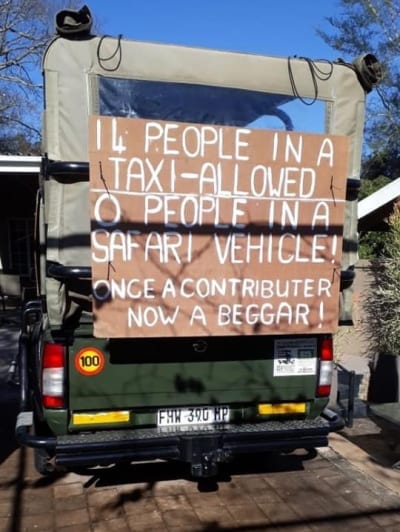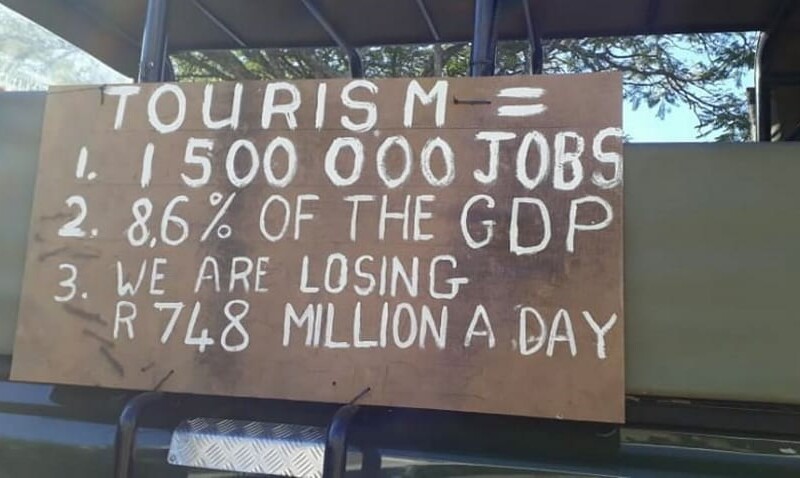Petitions and protests are being organised across South Africa by tourism stakeholders who are frustrated with the current regulations which include an outright ban on all leisure tourism (read more about this here) – despite the taxi industry being allowed to operate at 100% capacity.
Tourism was impacted by COVID-19 before the first case was confirmed in South Africa and is expected to be one of the last industries to recover. The subsequent lockdown is reportedly putting 1.15 million tourism jobs in jeopardy, and many are frustrated by the double standards that seem to apply to different sectors.
The subsequent lockdown is reportedly putting 1.15 million tourism jobs in jeopardy, and many are frustrated by the double standards that seem to apply to different sectors.

Business tourism, however, has been given the green light since 25 June 2020. (Read about this here.)
“If Government officials had had 100% of their salaries taken away from them the way we have, they would understand how deeply this crisis has affected us. I don’t know where they think we’re going to get the money to pay our staff,” says Safari operator Hylton Langley, who staged a peaceful protest on wheels on 17 July.
Roughly 600,000 tourism employees applied for UIF TERS in June. Form July, this relief measure will no longer be available.
Read: What next for the tourism industry?
Langley’s protest of 60 tourism vehicles drove from White River to the Government buildings in Nelspruit, displaying placards with messages such as: “14 people in a taxi allowed. 0 people in a safari vehicle. Once a contributor, now a beggar” and “No salaries for government ministers since they have shut down tourism”.
“Action is the only language our Government seems to understand. I don’t know where this action to highlight livelihoods lost is going to go, but if it works for the taxi industry, perhaps it will work for Tourism,” says Langley. He encourages other wheels operators to do a slow drive past their municipal offices to show how their staff and businesses are been affected by the current restrictions.





